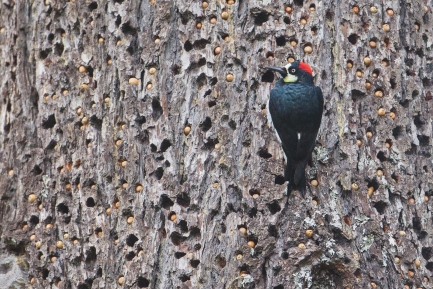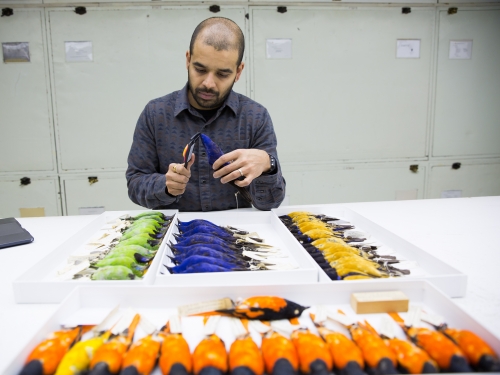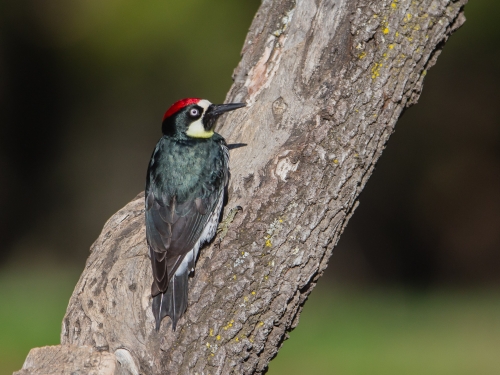Female acorn woodpecker on an acorn granary.
A new study published today in the journal Proceedings of the Royal Society B suggests that even complex cooperative breeding strategies may offer direct evolutionary benefits over an animal’s lifetime, and perhaps offers clues into how social behavior first evolved in humans and other animals.
The research team’s analysis revealed that individual acorn woodpecker males that bred as co-breeding duos and trios left behind 1.5-times more direct offspring than single-breeding males. They also found that these co-breeding males tend to spend two to three extra years as breeders compared to their paired-up counterparts, which may be responsible for the increased reproductive success over the co-breeding birds’ lifetimes. Female woodpecker duos and single-breeders each left behind roughly the same number of young over their lifetimes, but those that bred as trios produced 2.5 fewer chicks.








